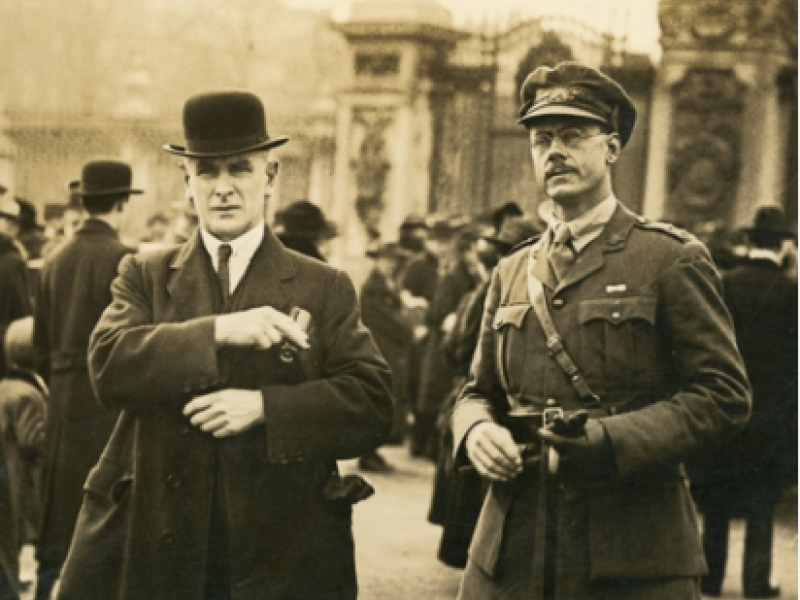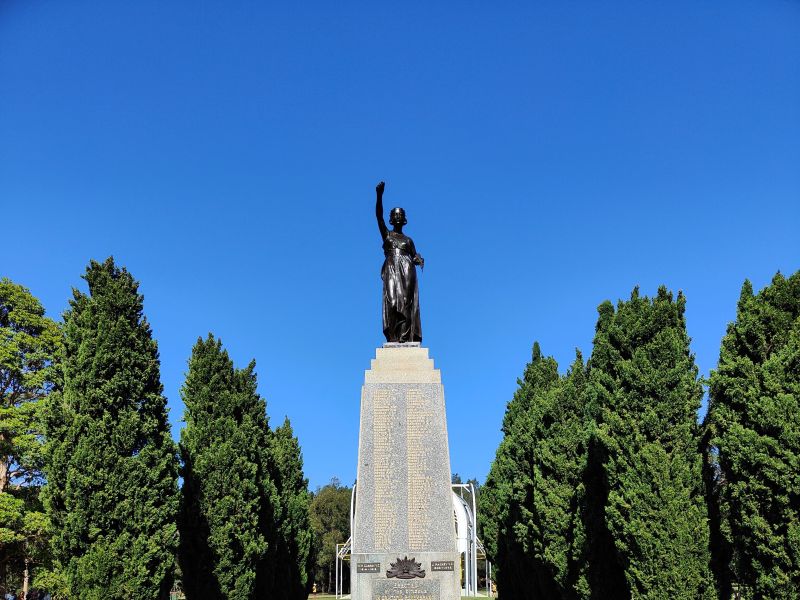Lieutenant Abel Richmond Sheath, 18th Battalion, AIF
Abel Sheath was born on 31 March 1890 to Harris and Harriet Sheath in Sydney. He went to Leichhardt Superior Public School, and was well known in local cricket and football competitions. He was an active member of the Protestant Loyal Orange Lodge, and worked as an accountant.
Young Abel was brigade sergeant major in the junior cadets, and had a commission in the senior cadets. Despite this, Sheath enlisted in the Australian Imperial Force in July 1915 as a private soldier. By early 1916, he was 2nd lieutenant, and embarked with the 11th reinforcements to the 18th Battalion in April 1916.
Sheath joined the 18th Battalion in France in December 1916, and soon after was promoted to lieutenant.
In September 1917, during preparations for the battle of Menin Road, Lieutenant Sheath was working overnight to create a brigade supply dump. He was wounded by a shell fragment but refused to leave the line so he could participate in the attack on 20 September.
During that attack, every other officer in the company to his left became casualties. Sheath took command of the two companies and rushed the enemy’s position, achieving all objectives.
He was awarded the Military Cross, his citation noting that Sheath repeatedly showed “courage, coolness and resource of a high order … During the enemy’s counter attacks and heavy shelling, [he] again inspired all by his cool bearing and utter disregard of danger.”
Sheath was a popular member of the battalion, singing at concerts in a “fine baritone voice”. He was an enthusiastic participant in battalion sports, described as “level headed, sound and well trained,” a man “possessed of an excellent word of command and a bearing which commanded attention”.
On 8 August 1918, the 18th was in the battle of Amiens, the opening attack of the great British offensive of that year, and a startling success.
Lieutenant Sheath led his men to their final objective, but went back to the original line at some point. Reports indicate that he was tending to some wounded men of the 20th Battalion when he was shot by a machine-gun bullet.
His body was found by his Battalion soldiers later that day, and he was buried in a small cemetery north-east of Marcelcave on the Somme.
A report on Abel Sheath in the 18th Battalion’s war diary says, “as a man, it is difficult to say enough in appreciation of his character. He was at all times the ideal of a courteous and cultured gentleman, full of kindly humour and good-fellowship. Few if any of our officers have been so highly respected among all ranks.”
After the war, Abel Sheath’s body was reinterred in the Villers-Bretonneux Military Cemetery, where he lies today under the words “in memory of the dearly loved son of Mrs. H.A. Sheath of Haberfield”.
He was 28 years old.
Meleah Hampton, Historian, Military History Section
Image: Dr W Jenner and Lieutenant Abel Richmond Sheath, MC, 18th Battalion, outside Buckingham Palace following Sheath's investiture, c.1918
- Australian War Memorial https://www.awm.gov.au/collection/AWM2019.1.1.332

 Australian War Memorial
Australian War Memorial